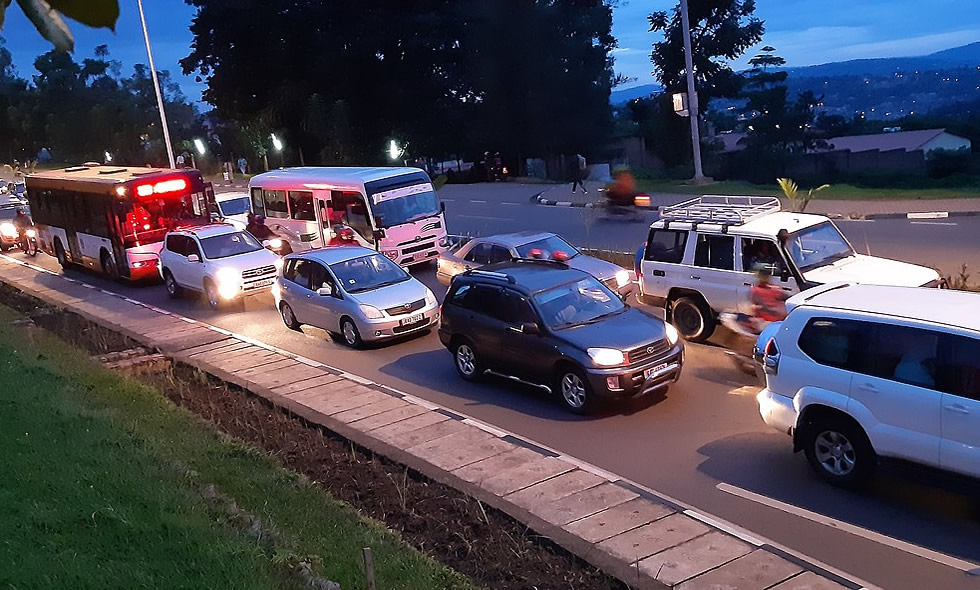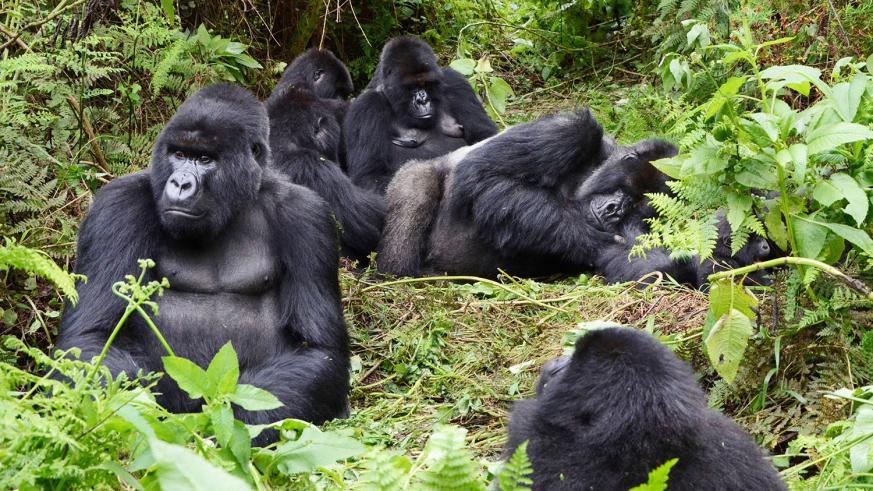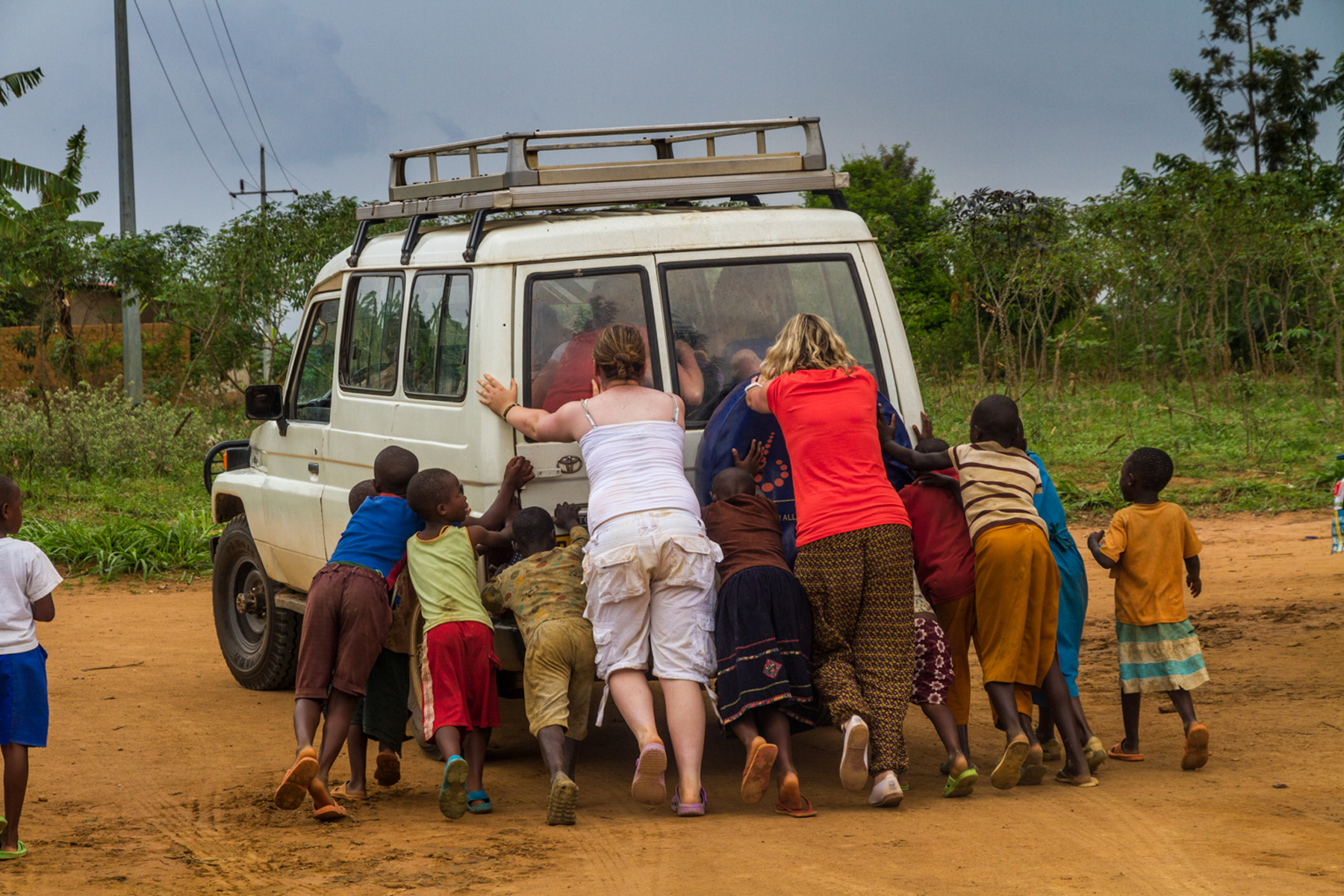
Traffic Tips for Driving in Rwanda
Rwanda is relatively safe compared to other countries. Driving in Rwanda is absolutely an exciting experience but requires some braveness while you are behind the wheels. For starters, higher chances are that you will face challenge driving in Rwanda’s roads as most of them are not yet to the standards of say United States or England. To get the best of your self drive experience in Rwanda, take a look at significant road safety rules and traffic tips for driving.
Driving in Rwanda always requires you to keep left and speed limit in town areas shouldn’t be over 40kms per hour and 60kms per hour in provinces.
Plastics are not tolerated, therefore do not dump rubbish anyhow while driving in Rwanda or else you will be penalized. The government of Rwanda banned all non-degradable polyethylene plastic bags in 2008.
Be prepared to drive along several terrains in Rwanda. Driving in Rwanda is amazing since most of its routes have been paved.
To drive in Rwanda, you should be at least 18 years that is for categories A and B and 20 for categories C, D, E and F.
Make sure that you have a valid driver license or international driving permit, car registration documents as well as car insurance certificates.
Do not drive at night in Rwanda-this is dangerous.
Do not drive when you are drunk. The legal blood alcohol level in Rwanda is 0.08 percent and random breath testing is done by police.
Road Safety Rules and Regulations in Rwanda
Before you embark on a self-drive tour or guided tour, be aware of traffic rules to avoid being taken by surprise by presence of traffic officers. Road safety in Rwanda is governed by the traffic and road safety Act.
Drivers should keep left when driving and if you are not familiar with road rules please rent a car and driver and still enjoy your road trip at your own pace.
The speed limit in town areas is 40kms per hour and 60kms per hour in provinces.
To drive in Rwanda, you need a valid local or international driving permit/license.
Driving Tips before starting a Car Hire
- Check out the blinkers for proper operation.
- Cross check if the tyres are inflated well.
- Prior driving a rental car please do some simple safety check
- Turn on the lights and move around to ascertain if all lights are working.
- When you enter into the car please adjust all mirrors and seats prior starting it.
Driving Tips while your Rental Car is moving
- Turn your head to check no one is coming prior joining the road.
- Take note of traffic lights-green color is always for you to look left and right, straight then left once more prior proceeding.
- Always be on seat belts and put on your seat belt before starting your car
- Make sure that the headlights are on and the car is visible 4 times the distance with its headlights on
- Please indicate in case you need to make a stopover.
- Keep within driving speed limit.

10 Things to Know About Gorilla Trekking
Gorilla trekking is one of the best adventure tourist activities in the world. Uganda and Rwanda are some of the world’s best destinations for gorilla trekking safaris in Africa. The Volcanoes National park in Rwanda, Bwindi Impenetrable Forest National Park and Mgahinga National Park in Uganda hosts the largest number of mountain gorillas hence the biggest gorilla trekking experience.
Here are 10 things to know about gorilla trekking in Africa:
- The experience is expensive
Gorilla Trekking is an expensive activity. In Uganda , the permit to see the mountain gorillas cost US$ 600 while in Rwanda it costs US$ 750. To that note therefore, many clients find it hard to pay for gorilla trekking permit, Air ticket, Visa and so on. - The trekking requires maximum level of fitness – many people likes gorilla trekking but experience is strenuous and it involves climbing mountains and sloping down, crossing rivers and moving through slippery trails among others.
- Some forests habour dangerous insects, animals and reptiles. The fact that Gorilla trekking is conducted in Forested areas, trekkers stand higher chances of getting Malaria from Mosquitoes, Sleeping sickness from Tsetse flies among others. However, we advise all our clients to move with mosquito repellent.
- Gorilla trekking is tiresome – trekking involves moving through the forest while searching for the mountain Gorilla and the time to meet Gorillas in unpredictable and some times takes a full day.
- Gorilla permits are on a very high demand and are booked in advance yet some clients prefer paying on arrival. Any delay to pay for the permits can make a client miss trekking when all gorilla permits are sold out.
- Gorilla permits are non refundable -once the client has paid for the gorilla permit and misses to come on the safari then, the Uganda wildlife Authority (UWA) OR Rwanda development Board (RDB) will not make refund by can only allow rescheduling.
- Gorilla tracking starts early morning yet some people find it hard to wake up early especially on cold days. Early in the morning, Gorilla trekking trails are filled with fog and dew which hinders visibility and smooth walking to meet Mountain Gorillas.
- Gorilla trekking is strictly done under instructions – only one hour is given to stay with Gorillas, No flash cameras, 7 metres distance must be left between Gorillas and the trekkers among others. Some people are not used to strict instructions.
- Gorilla Tracking is Safe!
Many travelers think that gorillas are violent creatures and thus can cause harm to human beings. However, gorillas are peaceable animals unless provoked. once you follow the set gorilla watching rules, you will definitely enjoy the company of these great apes safely. - There are strict rules to gorilla tracking that follow ecotourism. Children below 16years are not allowed to trek Gorillas yet some parents prefer trekking Gorillas with their children. Only one hour is allowed to stay with Gorillas –some clients find it less to maximally view gorillas and take photos.

How to Avoid Car Rental Nightmares in Rwanda
Currently car hire in Rwanda has become popular trend of travel in the land of a thousand hills. When it comes to the ground transportation fraternity, organised travel can easily be attained if you decide to work with car rental agencies. This is normally used by independent travelers on a self drive car rental in Uganda. Remarkably, renting a car in Uganda has been so useful to visitors traveling to Uganda since they are convenient, safe, and reliable to take the travelers at any place they are practically or still be un-farmiliar with.
On the same note However, self driving in Rwanda can be disastrous if you are never careful. This can be validated by you hitting the internet and see how some customers complain about them due to the high costs they land in after using the car rentals as some car rental companies hire cars to customers without insurance coverage and pretend to have. Not well services and there are also overwhelmingly hidden fees that are not explained to the customer before hire.
So we are here to enlighten you on how to avoid Rwanda car rental nightmare:
Know what car suits your travel needs.
Continuously, most people make a mistake of under estimating the need or finding out what car best suits the needs of their travels and just go for expensive car rental yet there are those cheap cars in Rwanda purposely for a specific need. Say adventure, business car rental or corporate car hire. Example if you are going for a Rwanda gorilla safari, ask yourself which car suits the tour, read about the terrain of the Virunga volcanoes and know in detail which car maneuvers the terrains. Vehicle with high ground clearance would perfectly fit your needs.. The most recommended cars for safaris are the Toyota land cruisers, Toyota RAV4s and the Nissan patrols reason behind is these are sport utility vehicles with 4WD with reasonably high ground clearance vehicles. On the other hand if you are going for a city tour around Kigali city and the neighboring towns of Musanze, Huye or Karongi with about two persons,best recommended use a compact car.
Book a car rental in advance
Like the old saying goes, The early bird catches the worm and this works well in Rwanda car rental business due to the high demand and growing car rental demand and yes, in the high tourist seasons. If you start searching and booking your car rental earlier than the date you intend to travel, you have the time to look for a best car rental as you have all the time to search and also bargain for better offers getting the best car rental deals. There is always room for you to control the car rental deals in that you tell the car rental company whatever you want in the car rental service that is the size of the car, specification and the prices
Ask for the disclosure of all the prices included in the car rental package
In every business on the internet, there are always attractive prices displayed on the websites and there are always additional costs behind the enticing price on the internet. So you have to play your part and tell the car rental company in Rwanda to stipulate each and every expense you may incur while using the car rental services in Rwanda. Some of the hidden costs are fuel refill fees, early return fees, limited mileage, road taxes, and airport parking fees. So make sure all these are included and explained to you in the car rental clause and the car rental agreements so that you can easily budget for your car rental in Rwanda.
Ask if the car rental in Rwanda is comprehensively insured
It’s a mandate from the government of Rwanda that every car rental in Rwanda must be insured against third party, comprehensive insuarance is recommended and yes never hire a car in Rwanda without comprehensive insurance because if you land in trouble and in cases of damages, all the costs caused will be apportioned onto you. Very much recomended make sure that has third party insurance and comprehensive insurance where by the car is covered against all cost it may cause while traveling.
Considerably following the above advice well, you are more likely to avoid the nightmares that may be attached to Rwanda car rental and definetly enjoy your self drive car rental in Rwanda.
Read More